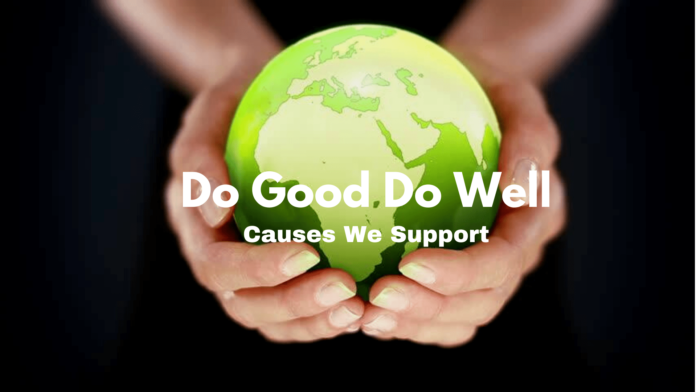Introduction
Zakat, which means “purification,” is the most widely-given Ramadan charity. We need to understand the true meaning and essence of charity and Zakat to unlock the path to success in this temporary world and the life hereafter.
Give zakat washes away the giver’s selfish and greedy thoughts while also helping to redistribute his wealth to those in need. Although it may seem that giving Zakat reduces one’s wealth, the reality is that it actually increases it by distributing it among more people.
In another verse, it says, “Take from their wealth, O’ Prophet, charity to purify and increase them and pray for them—surely your prayer is a source of comfort for them. And Allah is All-Hearing, All-Knowing.” (9:103)
The connection between Salah ( Prayer) and Zakat
More than three dozen times in the Quran, zakat, and salah (prayer) are mentioned together, as both acts of worship complete our faith and bring us closer to Allah.
“And establish prayer and give zakah, and whatever good you put forward for yourselves – you will find it with God. Indeed, God sees what you do.” (2:110)
Equilibrium between oneself and the world can be maintained through a combination of our spiritual development through prayer and social responsibility through Zakat. We are all aware of the significance of prayer.
Both Salah and Zakat require a level of understanding and our connection with Islam, but Salah is more related to the spiritual, and Zakat is more for social and community welfare.
The Connection between Zakat and Service to Humanity
The third pillar of Islam differs greatly from the other pillars. It is also about our relationship with our Creator, with other humans, and with society.
Practicing zakat is an effort to build a sustainable and generous society. It guarantees that the entire community will look out for the most vulnerable members of society. It promotes local and global social welfare and a belief in spreading positivity and kindness all around.
It makes a connection between those who give and receive, and it helps people in financial crises not feel alone. It fosters a sense of unity and prepares strong foundation for an Allah-fearing society.
“As for the believing men and the believing women—all [of them] are allies of one another. They enjoin what is right and forbid what is wrong. Moreover, they [duly] establish the prayer and give the Zakât-Charity, and they obey God and His Messenger. It is these upon whom God shall have mercy. Indeed, God is overpowering, all-wise.” (9:71)
Zakat is mentioned alongside those who encourage the right and forbid the wrong. This magnifies the significance of donating during Ramadan, which is the human connection built between the giver and the community.
Purification of Hearts and Soul
Charitable giving and good deeds are great ways to cleanse our souls. Allah said: “But the righteous one will avoid Hellfire, who gives from his wealth to purify himself.” (Qur’an, 92:17-18)
“Take from their wealth a charity by which you cleanse them and purify them, and invoke blessings upon them.” (Qur’an, 92:103)
The hope that comes from knowing that our good deeds will be rewarded in the Hereafter makes it easier to part with material possessions and prevents us from being envious of other people’s success. Giving to charity involves more than just monetary contributions; it also involves giving one’s time, energy, and effort, as well as one’s efforts to bring smiles and hope into others’ lives.
Jabir ibn Abdullah reported: “The Messenger of Allah (SAW) said: ‘Every good deed is charity. Verily, it is a good deed to meet your brother with a smiling face, and to pour what is left from your bucket into the vessel of your brother’.” (Sunan At-Tirmidhi, 1970)
Every Muslim has a responsibility to give to charity, and everyone has something to give in terms of money, time, or effort. At the very least, Muslims can refrain from causing harm to others, which is also a form of charity.
Abu Huraira reported: “The Messenger of Allah (SAW) said: ‘Charity is due upon every joint of the people for every day upon which the sun rises. Being just between two people is charity, and helping a man with his animal and lifting his luggage upon it is charity, and a kind word is a charity, and every step that you take toward the mosque is charity, and removing harmful things from the road is charity.” (Sahih Muslim, 1009)
A Muslim’s heart becomes stained whenever he or she sins, but the stain can be washed away through repentance, charity, and good deeds.
Abu Huraira reported: “The Messenger of Allah (SAW) said: ‘Verily when the believer commits a sin, a black spot appears upon his heart. If he repents and abandons the sin and seeks forgiveness, his heart will be polished, but if he increases in sin, the blackness increases. That is the covering which Allah has mentioned in his Book: ‘Nay, but on their hearts is a covering because of what they have earned,’ (83:14)” (Sunan ibn Majah, 4244)
Endnote
So, a Muslim must keep doing supplications, prayers, acts of charity, and good deeds until his or her heart is clean of sin. A Muslim’s salvation is dependent on purifying the heart and soul and adorning the heart with good virtues. On the Day of Judgment, each of us will be judged based on our prayers, good deeds, and righteous intentions of our deeds.





